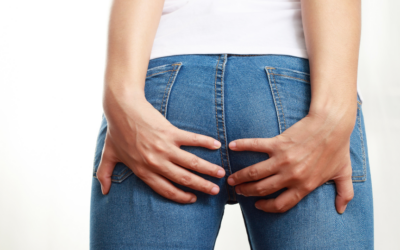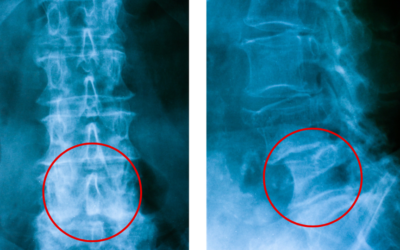If you’re experiencing constipation and you don’t know why it’s worth considering whether Piriformis Syndrome is to blame. This relatively uncommon condition can cause uncomfortable symptoms like constipation and can be tricky to diagnose. Read on to learn more about Piriformis Syndrome and how it might be connected to your constipation. You may find relief from some of your symptoms by taking steps to address the underlying causes of Piriformis Syndrome.
In this post, I will give you some reasons why piriformis syndrome can cause constipation, based on my 30 years of experience advising, treating, and designing simple solutions (even a successful Kickstarter!):
As a general rule, piriformis muscle spasms can occasionally impinge on the pudendal nerve that controls bowels and bladders, causing constipation and sometimes even incontinence. A proper medical diagnosis is always advisable.

The reason that the piriformis muscle can cause constipation is that the Piriformis muscle is located right next to the sciatic nerve, which runs down the entire length of your leg and controls the muscles in your leg. When this muscle becomes tight, it can compress and irritate the sciatic nerve, causing a variety of symptoms, including constipation. If you are experiencing constipation along with other symptoms of Piriformis syndrome, such as pain in your buttock or down your leg, it is important to see a chiropractor or other healthcare professional for an accurate diagnosis and treatment.
Does the Sciatic Nerve Affect the Bowels?
Among these changes may be:
- Inability to control bowel and bladder movements.
- Having difficulty passing urine, a reduced urinary sensation, a loss of desire to pass urine, or a poor flow.
- Legs or feet losing feeling.
- Disfunction in a sexual relationship.
- Your feet or legs are burning, hurting, or having pins and needles.
The sciatic nerve is the largest nerve in the body, and when it is compressed or irritated, it can cause severe pain. Sexual dysfunction and bowel function can also be affected by this nerve. If you are experiencing any of these problems, you should see a doctor rule out any serious underlying conditions.
What Worsens Piriformis Syndrome?
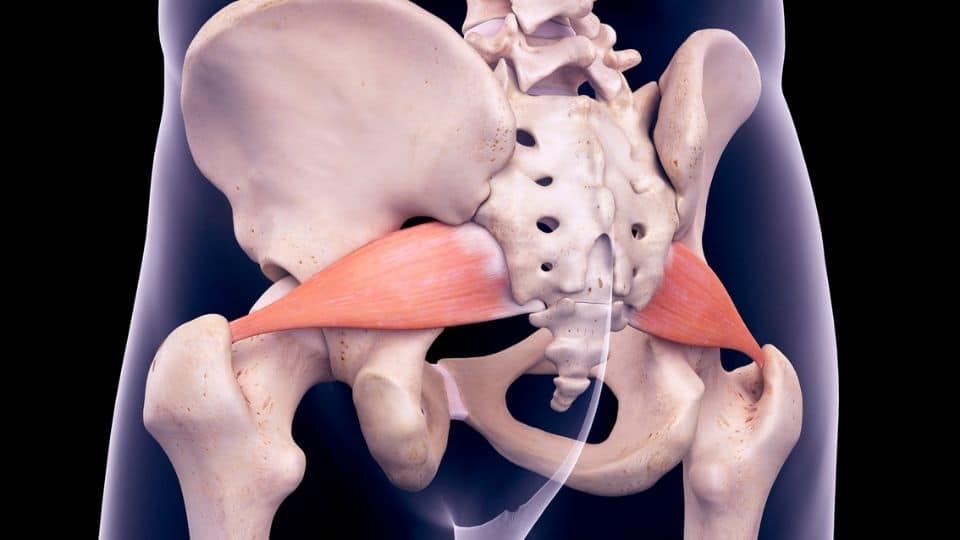
Piriformis syndrome is often aggravated by prolonged sitting, prolonged standing, squatting, and climbing stairs. that involve prolonged sitting, such as driving, or activities that require twisting or rotating the hip, such as golf or tennis. Other aggravating factors may include:
– Muscle fatigue
– Poor posture
– Muscle tightness
– Wearing high heels
– Obesity
Piriformis syndrome can also be aggravated by conditions that cause inflammation, such as arthritis or bursitis. In some cases, the condition may be caused by a traumatic injury to the hip or pelvis.
Can You Be Constipated and Still Have a Bowel Movement?

Yes. It’s possible that you can be constipated, yet still have bowel movements. Constipation is typically defined as having fewer than three bowel movements a week. While having an occasional bowel movement every few days isn’t necessarily cause for concern, it could be a sign of constipation if you typically have bowel movements more frequently than that and suddenly start going less often. If you’re constipated, you may experience hard stools, difficulty passing stool, or a feeling of incomplete evacuation. These symptoms can be uncomfortable and may lead to straining during bowel movements.
There are many potential causes of constipation, including dehydration, a lack of fibre in your diet, or certain medications. If you’re experiencing prolonged constipation, it’s important to see your doctor to rule out any underlying medical conditions. In some cases, simple lifestyle changes such as drinking more fluids or eating more fibre-rich foods may help relieve constipation. If home remedies don’t seem to be effective, your doctor may recommend other treatments such as stool softeners or laxatives.
Does the Sciatic Nerve Affect the Bowels?
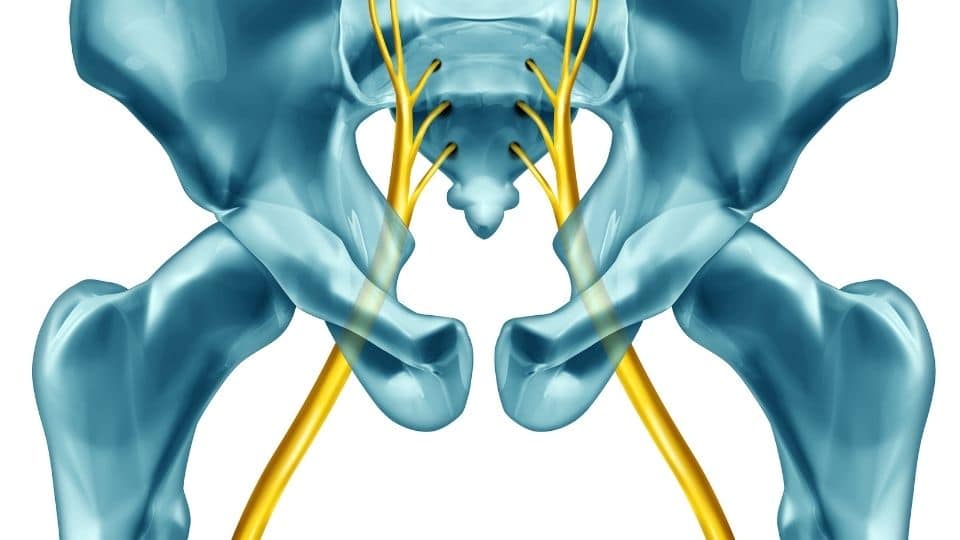
Certainly. A change in your ability to control your bowels and/or bladder may occur. It may be difficult to pass urine, the sensation may be reduced, a loss of desire may occur, or the stream may be poor. You may also have difficulties with sexual function.
Therefore, sciatica may affect some people’s bowels. There can be a loss of control over bowel movements as well as other issues such as incontinence (inability to control urination) and sexual dysfunction. Severe cases can even result in paralysis.
If you are experiencing any of these symptoms, it’s important to see a doctor as soon as possible. Sciatica can be a very painful condition, but it can be treated effectively and usually does not last long.
Can a Pinched Nerve Cause Constipation?
If you suffer from back pain that results from a spinal cord injury or nerve condition, you may experience constipation. The nerves that control a part of your colon and intestines can be damaged by these conditions. A damaged nerve can interfere with your ability to have healthy bowel movements. Some things can help ease your constipation if you suffer from a pinched nerve.
First, make sure that you are drinking plenty of fluids. This will help to keep your stool soft so that it can pass more easily. You may also want to try eating foods that are high in fibre, such as fruits, vegetables, and whole grains. These foods will also help to add bulk to your stool so that it can move through your intestines more easily. If you are still having trouble, there are over-the-counter laxatives that can help to soften your stool and make it easier to pass. However, be sure to talk to your doctor before taking any laxatives, as they can have side effects.
In some cases, constipation can be a sign of a more serious problem. If you are dealing with severe pain, bleeding, or vomiting, seek medical attention immediately. These could be signs of a blockage in your intestines, which is a very serious condition. If you are having trouble going to the bathroom and think you may have a pinched nerve, talk to your doctor. They will be able to help diagnose the problem and recommend treatment options that can help ease your constipation.
Why Your Stomach Hurts When Sitting
The majority of people have experienced constipation at least once. A piriformis muscle spasm may worsen your constipation, which may indicate a more serious problem. Sometimes it’s impossible to figure out why you have constipation.
Healthy stomachs are very important for your body. The stomach helps you digest everything you eat. You may experience some discomfort when you sit down. When this happens, your digestive system is likely to be affected by colitis or ulcers.
The best physician to see if you have a stomach problem is a gastroenterologist, an internist, or even your family doctor. Besides a simple stomachache, your doctor can identify if you have any other health problems.

Any possible cause of constipation while sitting can be divided into two groups: mechanical or medical. If you have a mechanical problem, such as poor posture, I can provide some useful tips. In the following paragraphs, I will discuss medical issues that could be causing your stomach pain. If you want to rule out serious conditions, you should consult a medical professional instead.
The pain you feel every time you sit down is probably gas. Sitting puts more pressure on the intestines, so if gas builds up inside, it can become painful. In spite of this, it is impossible to be certain without a detailed medical history and examination.
Sitting and Constipation: Mechanical problems
The way your body works is amazing! All parts of your body, including your stomach and intestines, are controlled by your nervous system. All these parts are connected to the spine so they can function as they should – including digestion, moving food through the GI tract, absorbing nutrients and minerals, and eliminating waste.
If the vertebrae in your spine are not lined up, they can press against nerves and make them unable to perform their function. As a result, you may suffer from heartburn or constipation. When your muscles are tense from sitting at work all day, this can affect how well your digestive system works.
Simple Fixes for Mechanical Issues
Chiropractors or Osteopaths
A competent chiropractor or osteopath may restore normal digestion by reducing pressure on nerves, joints, and muscles. Several techniques are used to realign your spinal column: rapid thrusts that realign vertebrae, as well as a slower, more gentle technique called mobilization. As part of your treatment plan, you may also receive massage therapy and other therapeutic approaches such as non-surgical spinal decompression.
Correct Sitting Position
Is there anything worse than having constipation? Your posture might be unhealthy. If we do it incorrectly, we will only make things worse and will not solve the problem!
Sit back as far as possible so your bottom and back are properly supported. Your feet need to remain on the floor. Increase the height of your chair if possible as well. It can cause tension in the muscles that are used for standing up from a seated position later when someone may want to leave quickly (or they may just become stiff) if you cross your legs or flex them under.
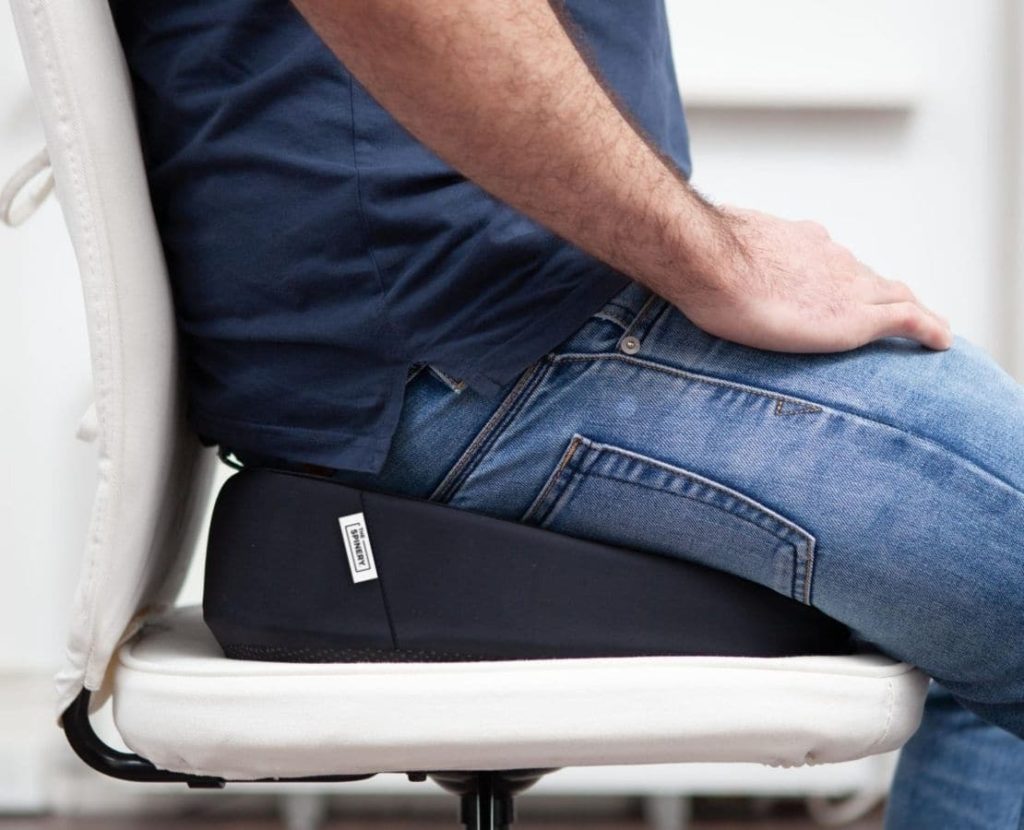
Your posture can affect your digestion! In my experience as a chiropractor and ergonomic adviser, I have learned how to relieve stomach pain caused by prolonged sitting. There are some tips that can alleviate discomfort when seated based on research. I recommend these:
Sit with the proper angles
In order to sit properly, you need to ensure that your hips are higher than your knees. The risk of blood pooling in the abdomen, lumbar spine and lower extremities is increased.
It is most important to consider the type of chair under us when deciding where or how to sit while at work: whether it is an office chair or an ergonomic seat cushion. Also, make sure your seat support fits your body, along with its height relative to your hip-to-knee ratio, otherwise, you’ll feel the pressure on your stomach and spine.
When seated, people experiencing stomach pain should recline their chairs as far as 110 degrees to relieve pressure on the stomach and spinal discs. If you sit straight, you’re more likely to get even more serious health problems such as herniated discs or pinched nerves.
Sitting with stomach pain requires keeping your spine as straight as possible. Your spinal cord can get pinched if you slump forward or stoop over! If this happens, all those nerves will be squeezed between two vertebrae instead of having adequate space to spread out so they don’t feel too cramped.
Sitting in one position all day isn’t practical, since 135 degrees is the optimal angle for sitting. During my research, I found that an optimal recline range of 8-13 degrees, or 3-4 inches off your knees and hips, feels comfortable.
Medical Issues that Cause Constipation
U.S. Department of Health and Human Services researchers published a study showing abdominal pain is the leading cause of emergency room visits in the country. Some other factors can also contribute to stomach pain, which is sometimes referred to as abdominal pain. The abdomen houses vital organs such as the intestines, pancreas, liver, gallbladder, kidneys, spleen, and appendix, so you should know what’s causing that pain before going through all those tests!
Symptoms:
Do you experience dull, achy pain that you can’t seem to get rid of? Do you experience sharp, stabbing pain? This information can be helpful to the doctor.
Affected area:
You may want to focus on the upper abdomen, the lower abdomen, or either the right or left side when you are trying to determine the exact location. A large number of organs are located in the abdomen.
Other symptoms:
Are you experiencing nausea, vomiting, diarrhoea, constipation, or heartburn in addition to abdominal pain? Each of these circumstances will be considered by your doctor when diagnosing you.
When to be concerned:
You should visit the emergency room if you have:
- Constant or severe abdominal pain
- Symptoms of fever-related pain
- When pain intensity changes, such as from a dull ache to sharp pain, or when it originates from one place and moves to another
- Aside from pain, other serious or unexpected symptoms may also occur such as respiratory problems or mental changes
- The localized pain
- In case of pain in the right lower quadrant, this could be an indication of appendicitis
- The upper right quadrant may show signs of cholecystitis or gallbladder infection
- There could be pain in the left lower quadrant due to diverticulitis or other infections
- You have diarrhea. You probably have a bacterial or viral infection if you have diarrhea (especially if you are vomiting).
- Norovirus. Gastroenteritis is commonly caused by noroviruses. The symptom of diarrhea associated with Coronavirus is often underestimated.
- Kidney stone. My personal experience suggests that you may experience the worst pain ever if you have a kidney stone! The pain comes with nausea, vomiting, and stomach cramps.
Takeaway
Ask for help when you need it! Your stomach may hurt for many reasons. Therefore, the possibilities are endless–and a serious illness or condition must be ruled out when your pain is persistent and intense.
We all have been affected by stomach pain at some point in our lives. You may be dealing with a more serious problem if sitting exacerbates your pain. An upset stomach can make life very difficult, and it is sometimes difficult to figure out what caused it.
You can visit my blog for more information on ergonomics, as well as other health-related topics that will help you keep your body healthy.
References:
- Can J Gastroenterol. 2011 Jan; 25(1): 39–40. doi: 10.1155/2011/910469, Chiropractic treatment for gastrointestinal problems: A systematic review of clinical trials
- Schiller, L.R., 2000. Diarrhea. Medical Clinics of North America, 84(5), pp.1259-1274.
- Wilcox, C.M., Yadav, D., Ye, T., Gardner, T.B., Gelrud, A., Sandhu, B.S., Lewis, M.D., Al-Kaade, S., Cote, G.A., Forsmark, C.E. and Guda, N.M., 2015. Chronic pancreatitis pain pattern and severity are independent of abdominal imaging findings. Clinical Gastroenterology and Hepatology, 13(3), pp.552-560.
- Adekoya, N., 2010. Reasons for visits to emergency departments for Medicaid and State Children’s Health Insurance Program patients: United States, 2004. North Carolina medical journal, 71(2), pp.123-130.
- Macaluso, C.R. and McNamara, R.M., 2012. Evaluation and management of acute abdominal pain in the emergency department. International journal of general medicine, 5, p.789.
- Elwood, D.R., 2008. Cholecystitis. Surgical Clinics of North America, 88(6), pp.1241-1252.
- Humes, D.J. and Simpson, J., 2006. Acute appendicitis. Bmj, 333(7567), pp.530-534.
- Klopfenstein, T., Royer, P.Y., Toko, L., Gendrin, V. and Zayet, S., 2020. Diarrhea: An underestimated symptom in Coronavirus disease 2019.
- Boyden, E.A. and Rigler, L.G., 1934. Localized Pain Accompanying Faradic Excitation of the Stomach and Duodenum. Proceedings of the Society for Experimental Biology and Medicine, 31(6), pp.655-656.



